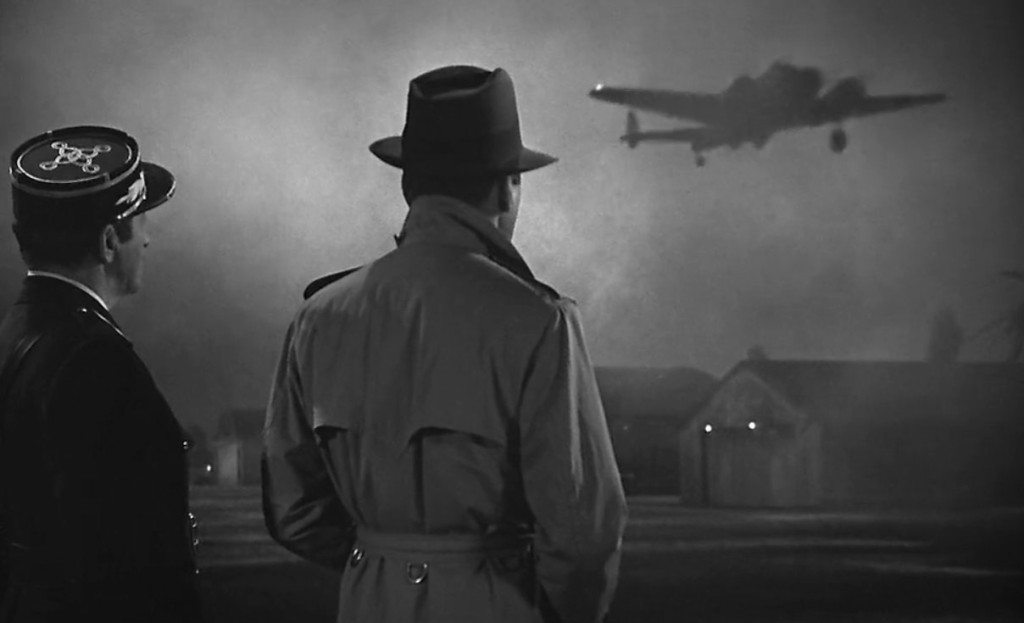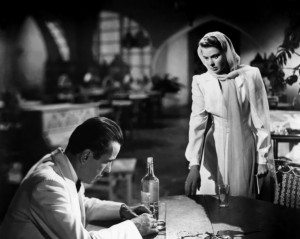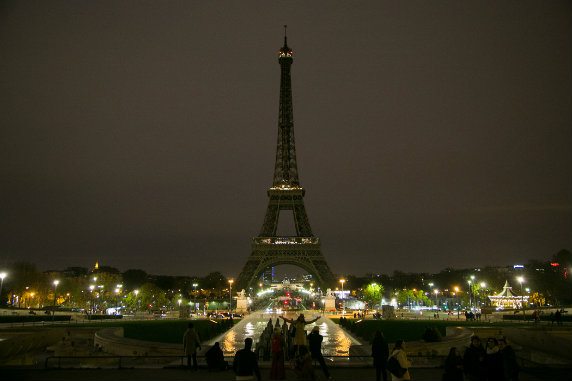“We’ll always have Paris”: Watching Casablanca the day after the attacks
Berlin is not just wonderful for its endless clubs and bars, but also for its vast variety of cinemas, catering to every film-goers need. If you fancy a blockbuster go to Cinestar in Potsdamer Platz. If you want to see a Tarkovsky retrospective every year go to Arsenal Kino. Or if you want to see Casablanca every Saturday at midnight go to Lichtblick Kino, just a short walk from Eberswalder Strasse Station. It is truly an independent cinema. The front area is a smoky bar, where you have to borrow a key to use the toilet round the back, and there is only one screen, with 32 seats. The cinema is used prominently for documentaries and independent German films – such as the recent Victoria and B-movie: Lust and Sound in West Berlin. But they have been showing Casablanca for years now, so if you really want to be like Allan Felix in Woody Allen’s Play it Again, Sam, this is the cinema for you. And it’s shown on actual old-school film, with various skips throughout!
Having a flight at six thirty in the morning on Sunday I decided on Friday afternoon that the perfect thing for me and my girlfriend to do was see this classic romance as it spoke rather well to our cross-cultural relationship. (She lives in Berlin and I live on Warwick Campus – but we are still making it work, despite conventional wisdom that long-distance relationships are doomed to fail).
What I couldn’t have known then was the increased significance the film would take on by the next day. In light of the awful Paris attacks, my personal response took on a whole new meaning. Instead of merely being a great idea for a date, it got at the essence of what it means to believe in a better future for all of us in the face of adversity. As Bogart says himself, “the problems of three little people don’t amount to a hill of beans in this crazy world”. This was one of those moments where the personal truly met the political and is evidential of how timeless the film truly is.
What I couldn’t have known then was the increased significance the film would take on by the next day
If you haven’t seen Casablanca (and there’s no excuse) it tells the story of Rick Blaine (Humphrey Bogart) who owns a cafe in the city, which is part of French Occupied Morocco. Casablanca is an important point in the war, a middle ground where refugees wait for visas to take them to Lisbon, from where they can go to the Free Americas. Rick is an archetypal Hemingwayan Hero – rugged, cynical, and constantly drinking, except never with his customers. He breaks this eternal rule however, when his ex-lover Ilse Lund (Ingrid Bergman) walks into his bar, as the wife of one of the leaders of the Resistance, Victor Laszlo (Paul Henreid). Rick is in the possession of important papers that would allow the two of them to fly to Lisbon so Laszlo can carry on his good work. Rick, still pissed about Ilse not coming with him when he fled Paris, refuses to give out the papers.
His selfishness is changed however and he realises the greater importance of helping Laszlo in the most famous scene in the film – an ironic fact as this scene was basically stolen from Le Grande Illusion. The German officers in the bar are singing Die Wacht am Rhein, a patriotic German song. Laszlo is upset with this so he orders the band to play La Marseillaise, and the exiled French drown them out. It is one of the greatest scenes in cinema, its relevance ever so apparent today, having been shared in social media, and the song been sung all over the world. Watching it in the cinema I couldn’t help but shed a tear – I would’ve sung along if I knew the words – as it truly transcends the screen and goes straight for the heart. As Rick realises that there are more important things than his own love for Ilsa, he sacrifices his love in order to help Lazlo and her get on the plane to Lisbon, thus helping the war effort against the Nazis.
Although one little movie won’t do much to assuage the grief of millions of people, or prevent more terror attacks from happening, what it does so well is show the goodness of ordinary people in the midst of a crisis, and to believe in the simple French ideals of Liberty, Fraternity and Equality
Although one little movie won’t do much to assuage the grief of millions of people, or prevent more terror attacks from happening, what it does so well is show the goodness of ordinary people in the midst of a crisis, and to believe in the simple French ideals of Liberty, Fraternity and Equality. Casablanca was made in this midst of the greatest crisis the world ever faced, where people were unsure of the future – this is reflected in the production of the film itself, where none of the actors knew the ending, and lines of dialogue were being written during filming – yet during that crisis goodness prevailed throughout and eventually triumphed. This isn’t just France’s war, or Europe’s, or America’s. This is a worldwide crisis, shown also in recent attacks in Beirut and Bagdad. There should be a strong united front against ISIS from all of us. I am merely a film critic, so I have no solutions about what should actually be done, but if Casablanca is any help, maybe we can start by singing La Marseillaise, and believing again in a united, multi-cultural Europe and a united world.
As we left the cinema and walked down the street, I observed all the people sat in bars and cafes at this late hour, drinking, chatting and smoking, generally having a pleasant time. They were much like those slaughtered in Paris, wholly innocent, simply enjoying their night out. We all deserve these simple pleasures safe from tyranny and from evil. This is a messy and disgusting situation for all of us, but the lessons from this film still remain remarkably relevant seventy-three years later. If you are in Berlin next weekend, (or the weekend after) try make it down to Lichtblick Kino for the most important film screening right now.




Comments